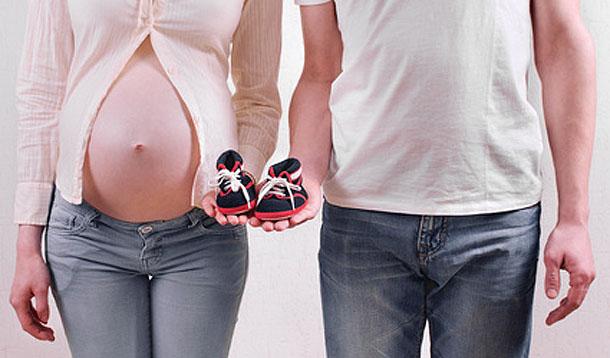
When I was a child, I thought people became pregnant because they took "magical vitamins." You know, those vitamins that only moms could take, aka prenatal vitamins. Little did I know, my mother had suffered countless years of trying to conceive while also enduring the pain from numerous miscarriages. Trying to conceive a child never came easy to her, and her pregnancy certainly was never a result of so-called magical vitamins.
I never fully understood her heartache or the effort that went in to trying to conceive a baby until my husband and I were ready to try to conceive our first child.
Pregnancy has never come easy for me. It’s funny how when you look back on your years in school you can always recall your health teacher hammering into your mind that if you have unprotected sex, you can and will get pregnant. This may be true for some people, but it certainly has never applied to me. However, I have come to accept over the years that there are certain things in life you can’t control. Making a baby is one of those things.
Did you know that infertility affects approximately 1 in 6 couples in Canada? I am part of that statistic. Infertility has impacted my life, and left its painful footprints in my journey to conceive my firstborn, but also my third. I’ve been faced with not only primary infertility, but also secondary infertility. Secondary infertility impacts 1 in 8 couples who have previously been able to get pregnant at least once, but are unable. The underlying cause of my troubles to conceive children has always been result of a tilted uterus. Failure to ovulate was also an underlying culprit in conceiving my third child.
If you are currently trying to conceive or planning to try in the future, keep these must-follow tips in mind:
MOST couples DON’T get pregnant right away. In fact, it is quite normal for conception to take several months to a year. It took 19 months to for me to conceive my third child.
Try to cut back on sugar, reduce caffeine intake, and increase water intake. Staying well hydrated is important for your body when trying to conceive.
Pinpoint your best two days to ovulate by charting your basal body temperature and through the use of ovulation kits. Try your best to make a point to make love with your spouse on those best two days.
The Stork is a great product for couples who are having trouble trying to conceive, but aren’t ready to take the next step of seeking out the assistance of a fertility specialist. The Stork helps to bridge the gap between natural intercourse and in-clinic, assisted treatments. It can be used at home, allowing couples the ability to take control by using a condom-like sheath to collect the sperm and a tampon-like applicator to place the semen close to the cervical opening. At-home cervical cap insemination has shown a recorded success rate of approximately 20%. (As someone who has a tilted uterus, I will definitely be introducing The Stork as a conception aid should I ever try to conceive another child.)
Trying to conceive should have been a romantic, enjoyable and intimate time for my husband and I. It was stressful, and I always spent so much time overanalyzing my charts. Would my charts detect ovulation then? I exerted so much energy in trying to conceive my daughter that I wore myself thin emotionally.
Try to keep your emotional stress in check. There are many infertility studies that show a connection between emotional stress and fertility issues in women. The stress hormone cortisol can disrupt and/or prevent menstruation completely, inhibiting implantation of a fertilized egg. Take time for yourself, whether it be creating a personal space for yourself, enjoying a quiet moment soaking in a luxurious bubble bath, or centering your mind and body through the practice of yoga.
Getting more sleep can also help. By maintaining a regular bedtime routine you will help regulate your energy and hormones. Try to aim for a minimum of 7.5 hours sleep per night.
It is important to keep not only keep your mental health in check while trying to conceive, but also your dental health. Gum disease can potentially lengthen the time that it takes a woman to conceive. Studies have also shown a correlation between maternal gum disease and premature birth. Visit your dentist regularly, floss and brush at minimum 2 times daily for 2 minutes each time.
Try taking a "conception moon." An impromptu getaway that would heed the opportunity for you to not only relax, but also reconnect and recharge as a couple. (This worked for me while trying to conceive my first!)
Also make an effort to make being a couple a priority. Enjoy couples massages, date nights, time cuddling on the couch while enjoying your favourite TV shows. Remember the fun of kissing. Try to avoid scheduled time to have sex and rather let it happen. Only change your sex life as much as you need to when trying to conceive.
I have taken away so much from my journeys to conceive all three of my children, I hope these tips help you on yours.

This is proudly sponsored by our friends at Rinovum Women's Health, Inc.
www.storkconception.ca